Having a fever may be considered light to some people. Soon you will get better anyway, along with good enough rest and good foods. Of course, that is only after you know how to tell if you have a fever.
How to break a fever easily? If you are a very busy person, even the mildest illness can and does annoy you. Especially during the weekdays when you should be n your best condition. So, its certain that you must find a quick way to tackle the issue.
There are plenty of ways to cure a fever, depending on the cause. It is also different if you do not have a thermometer around or whether you are alone. In some cases, fever can also cause blisters, so watch out.
Although fever may be cured easily too, dealing with it can cause you stress. This is why some people need antidepressant drugs, like Lexapro.
How to Tell If You Have A Fever Without A Thermometer
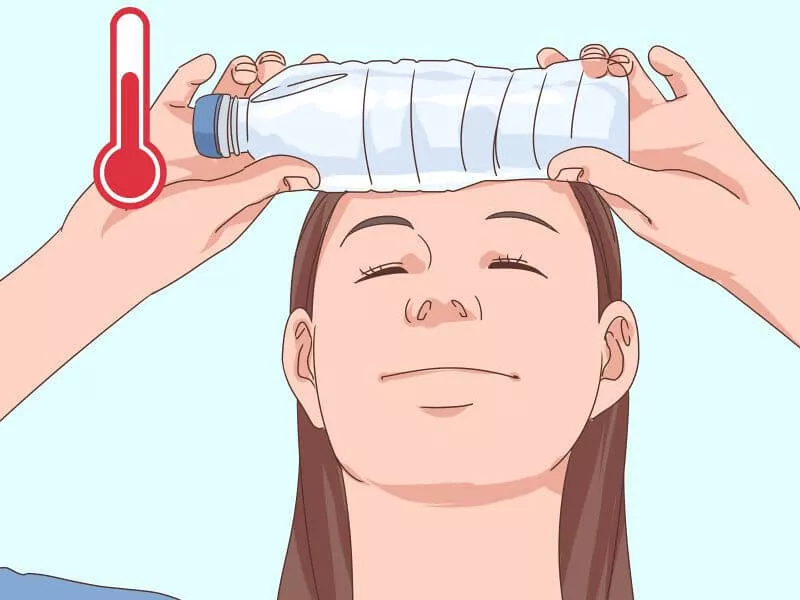
According to a registered nurse from RemediesForMe.com named Rebecca Lee, having a fever means that one’s body is fighting off infections. This is why some people decide not to rely on medications too much.
How to tell if you have a fever without a thermometer nearby can be done by:
- Touching your forehead with the back of your hand. Feel if it is warmer than it normally is.
- Checking your cheeks. Are they suspiciously red?
- Observing your urine. Does it look darker yellow than usual?
- Asking others around to check on your temperature. (This is even better if they have a thermometer too.)
- Trying using the stairs. If you feel dizzy and like you are about to faint, then it is positive that you have a fever.
How to Tell If You Have A Fever on Yourself
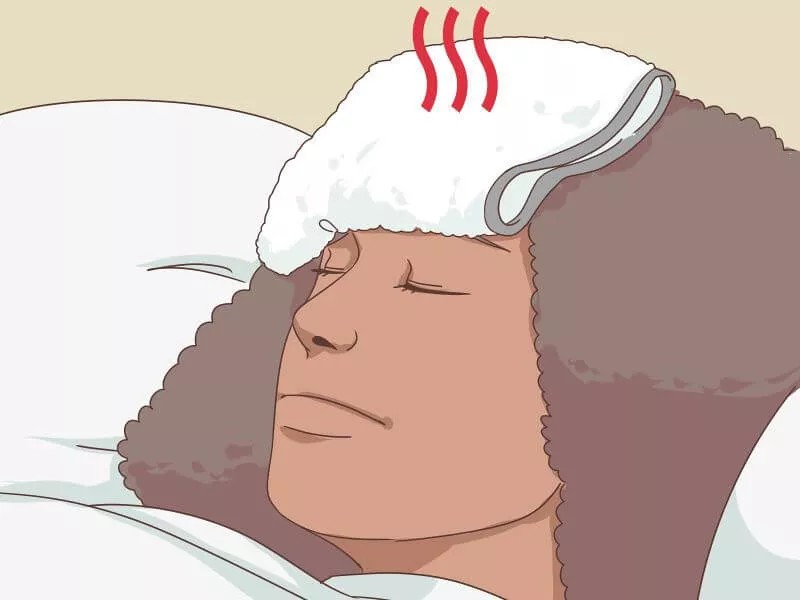
How to tell if you have a fever on yourself? Sometimes, even with the thermometer already in hand, you are still not really sure.
To discover whether you have a fever or not, some of these common symptoms may give you the clues:
- Dizziness or headache.
- Warm forehead or chills in your body.
- Sore, aching muscles.
- A sense of weakness.
- Stiff or sore eyes.
- Losing appetite to foods.
- A sense of dehydration.
- Swollen lymph nodes.
If you have no thermometer yet, you can try some of the approaches on the previous chapter. If you do have one, place it inside your mouth for 20 seconds until you get the readings out. Of course, this means no eating and drinking for 15 minutes before doing that.
How Normal Should Your Temperature Be and How About Your Child’s?
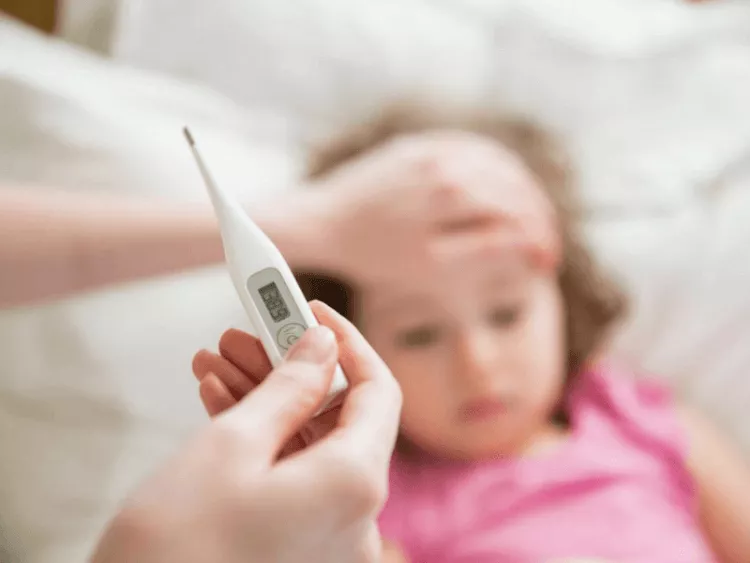
How to tell if you have a fever can be known from these temperature levels. As long as your body temperature is still under 37 C and above 25 C, then you are safe.
1. For General Adults (Young and Old)
You have a fever if your rectal temperature is 38 C or your oral temperature is 37.8 C or almost around that number. Your fever is high if the number goes up to 39 C.
2. For Infants (Up to Three Months Old) and Children Up to Three Years Old
Once their body temperature reaches 38 C, seek immediate help from the doctor right away. Babies are still much more vulnerable than older kids and adults. Male infants can suffer seizure from the high fever.
Whether it is a child or an adult, a 40 C body temperature means danger. Rush them to ER for further medical help right away.
Two (2) Other Ways to Use A Thermometer
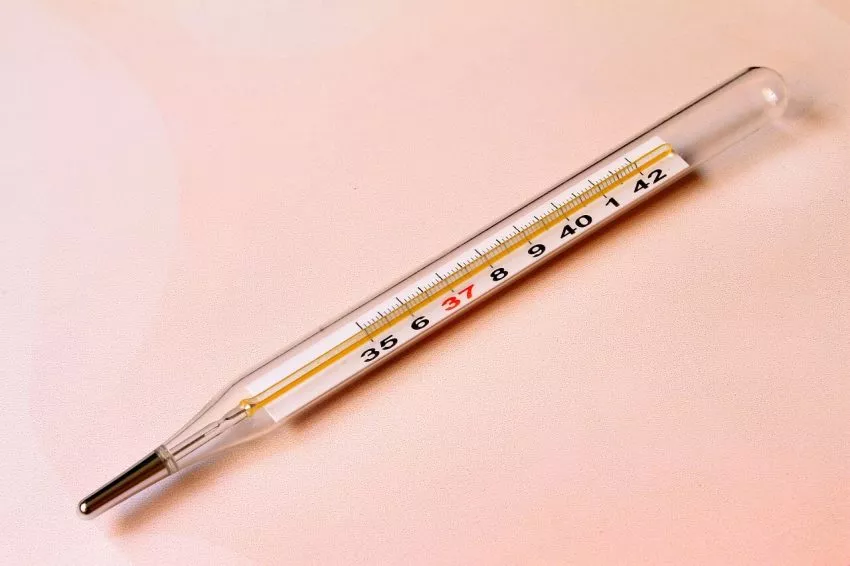
Earlier, it has been mentioned that to use a thermometer, you place it inside your mouth for 20 seconds. However, this is not the only way to use a thermometer to check if you have a fever. Two (2) other ways to do that include:
What If Your Children Have A Fever?

How to tell if you have a fever may be a lot easier. What if your children, especially infants, have a fever too?
Aside from the similar symptoms as adults, infants and children may experience some of these too as a sign of their fever:
- Feeling lethargic.
- A sense of greater irritability.
- Red or flushed skin (not just their cheeks).
- Ashen look.
- Trouble swallowing foods and gulping drinks.
- For infants, they may have trouble breastfeeding.
Unlike with adults, how to break fever easily may not happen to children, especially infants. In some cases, the cause of it may be more severe, like:
- Confusion
- Sleeping too much
- Convulsions
- Vaginal discharge for female infants and little girls
- Pain when urinating
- Throwing up
- Diarrhea
- Skin rash
- Physical agony
This is why kids suffering from fever must be handled medically and quickly.
How to Look After Your Feverish Child
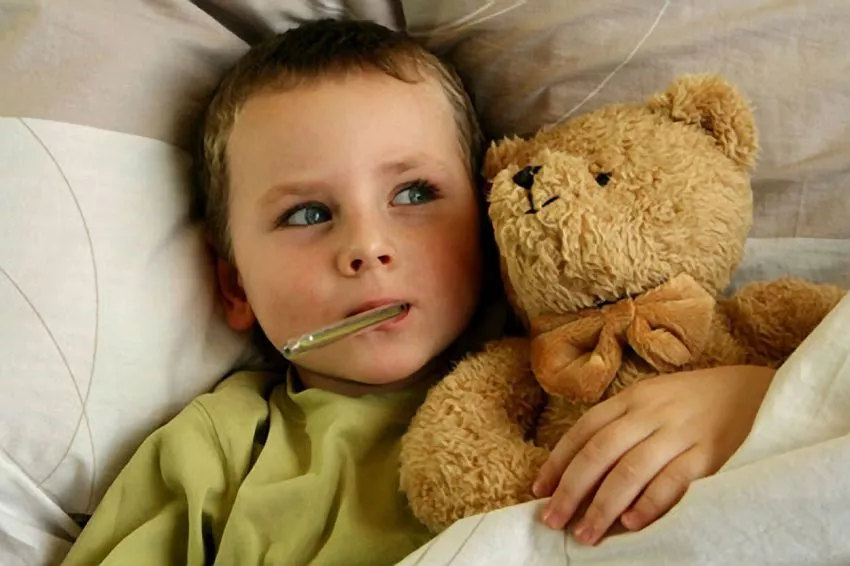
After checking their temperature, you can give them ibuprofen or acetaminophen to reduce the fever. The first one is still safe for kids under six months old and the other one is okay for children above two years old.
Dress them up with lighter clothes and feed them regularly, even just a little.
How To Tell If You Have A Fever Blister
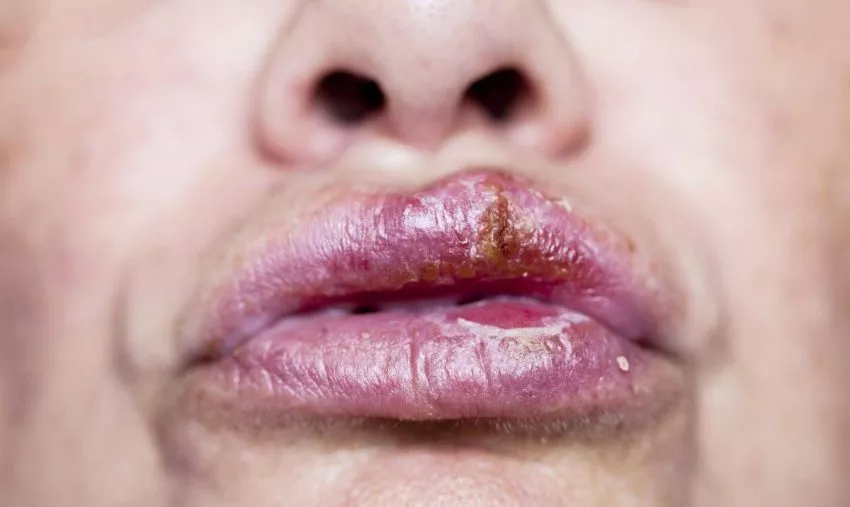
What is a fever blister? A fever blister is also known as “a cold sore”. Not only unpleasant, this can last for as long as two weeks, alias 14 days.
The tongue or the gum is often the suffered body part with these blisters. Each can be red and swollen. The blisters may also release a fluid. It scabs after several days.
Drug-Induced Fevers and Other Possible Causes

You should know that a fever sometimes caused by drugs. It what so called as a pharmacological effect. The fever that caused by drugs usually triggered by a hypersensitivity body reaction. This kind of reaction is similar to an allergic reaction.
Generally, it will disappear as drug consumption stops. Some drugs are often associated with drug-induced fevers such as penicillin, caphalosporin, methyldopa, phenytoin, lexapro, and so on.
Lexapro works as an SSRI or selective-serotonin reuptake inhibitor. It is considered safe enough because the youngest patients that can take this are at the age of 12. It is used to treat GAD or general anxiety disorder.
What happens when a patient stops taking Lexapro? Here are the Lexapro withdrawal symptoms:
Besides Lexapro withdrawal symptoms, you also need to watch out with your newborn baby’s caput succedaneum. It is a soft bump in the infant’s head right after the delivery.
- If your child may have a fever because of it, take him or her to the doctor. Through several tests, the doctor will find out whether the bump in the baby’s head is dangerous or not.
- Caput succedaneum is often mistaken for To be on the safe side, make sure with your pediatrician too.
How to Bring A Fever Down
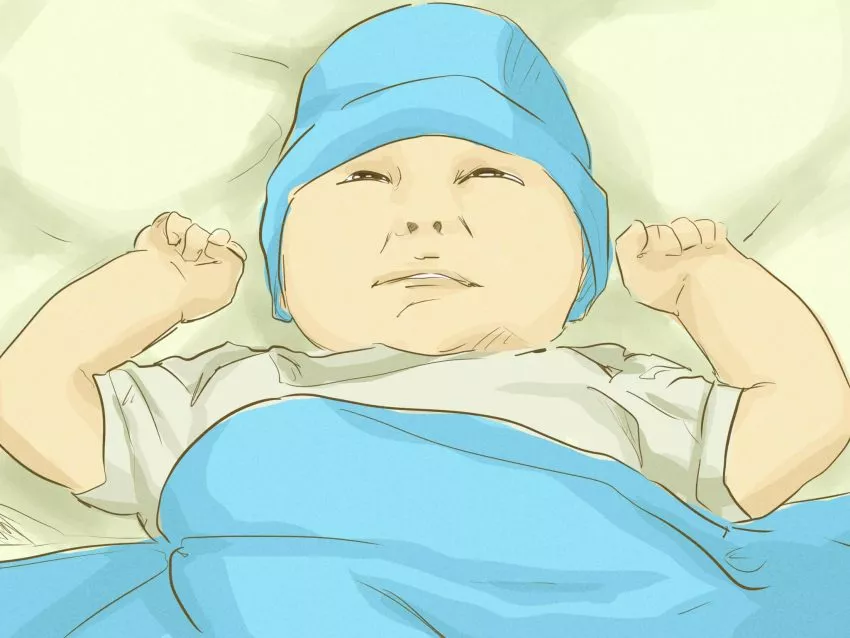
Now you have known how to tell if you have a fever or not. The next step is to figure out how to bring a fever down. Of course, this is an exception to a baby or a very young child, which definitely needs more medical attention.
Here are some of the easy steps for you to bring your fever down:
1. Stay Away From The Heat
Not only it makes you feel comfortable, it makes your fever take a while to heal. Wear something light and keep your room cool.
2. Drink Lots Of Water or Other Healthy, Recommended Liquids
Since the excessive heat in your body causes more sweat from the fever, stay hydrated. Not only drinking lots of water, mixing it up with other recommended liquids (like Pedialyte for kids) is also good.
3. Take The Right Medicines
Ibuprofen and acetaminophen are two most recommended medications for fever. They can also be over-the-counter medicines. To be on the safe side, consult with your doctor first, especially for the right dosage and for your feverish child too.
4. Have A Proper Rest
Sleep for as much as you can until the fever dies down. Relax.
The Shower: Hot, Warm, or Cold?
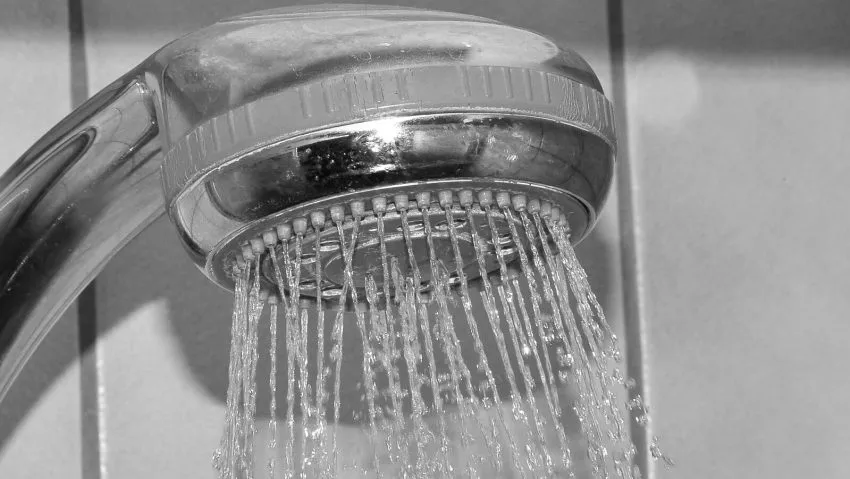
Staying clean is also part of healing process. When it comes to how to break a fever easily, which one is needed more? A hot, warm, or cold shower?
The answer involves two things: warm water and a sponge. Having a cold shower might reduce your temperature for a while. However, this can also lead to you shivering.
The opposite is also not recommended. The hot water can rise your fever even higher, which will be dangerous to your body. Sponging yourself with warm water is the most ideal way in this case.
Of course, you need to change the water’s temperature too, depending on how you feel. If it starts to feel colder, increase the temperature a bit. If it is the opposite, lower it.
One last thing to note down seriously when showering during fever: do not spend too much time in the bathroom. Get dressed immediately once you are done.
The Best Time to Visit Your Doctor for Further Medical Help
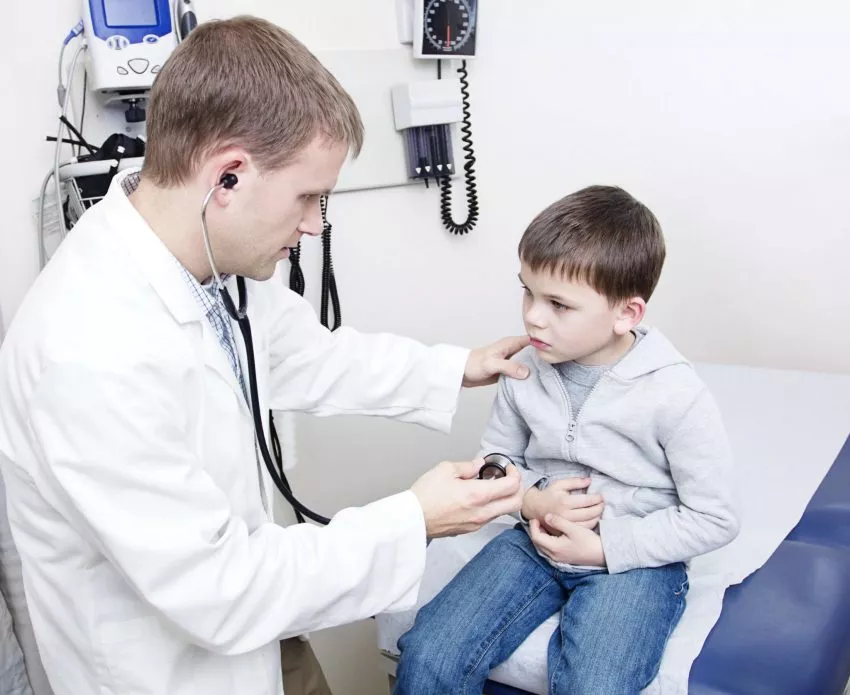
Unless it is your child, fevers in adults usually disappear on their own after a few days. However, if your body temperature rises up to 40 C and the medication does not work, then it is the best time to contact your doctor right away.
The Best Foods and Drinks When You Have A Fever

- Lots of water and juice.
- Fresh fruits.
- Probiotics (for example: fresh yogurt).
- More protein (for example: scrambled eggs, tofu, skinless chicken or turkey, and fish.)
Conclusion
Now you know how to tell if you have a fever. As long as you have the right thermometer handy, the medication, and treating your fever accordingly, then you also know how to break a fever easily.